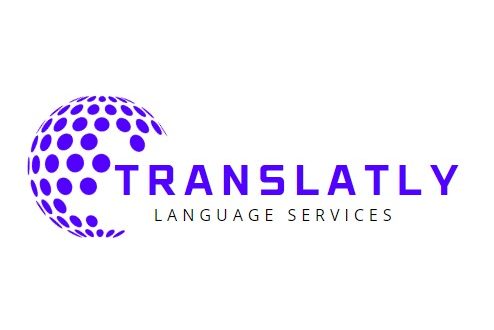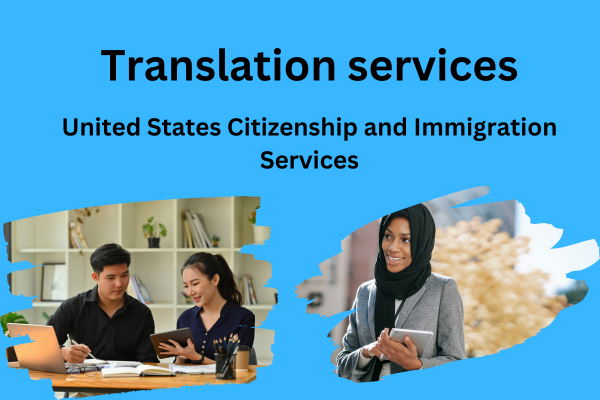Navigating International Legalities: The Importance of Translation Services for Legal Documents
When it comes to legal documents, accuracy and precision are paramount. Whether you’re dealing with contracts, court filings, or other legal materials, the need for reliable translation services is crucial.
In this article, we delve into the significance of professional translation services for legal documents and how they help overcome language barriers, ensuring clear and accurate communication in the legal realm.
Discover why Translation Services for Legal Documents are essential for a seamless global legal landscape.
What is a Legal Translation?
Legal translation is a critical process that requires the expertise of certified professionals. It is the translation of legal documents from one language to another to ensure that their meaning and intention are conveyed accurately, clearly, and without ambiguity. Legal translation services have become increasingly important in today’s globalized world as businesses, organizations, and individuals seek ways to expand their reach internationally.
A legal translation is a specialized type of translation that involves complex terminology and technical language unique to the legal field. It typically encompasses a wide range of documents, including contracts, agreements, patents, trademarks, court transcripts, witness statements, legislation and regulations.
As such documents are often used in legal proceedings or regulatory requirements; it is essential that they are accurately translated. When translating legal documents from one language into another there must be an understanding of the source text’s cultural context as well as its linguistic content.
Beyond simply translating words verbatim from one language into another there must be an understanding of how these words interact within a given culture. The translator must not only be proficient in both languages but also have a deep understanding of the law to ensure they use terminology correctly.
Given how much is at stake when it comes to legal matters; even small errors in translation can result in significant consequences for all involved parties. Incorrect translations can lead to misunderstandings between parties or even damage reputations leading to long-term financial or emotional burdens on one’s reputation or business.
To avoid these issues; most professionals recommend hiring a qualified legal translator with experience in the relevant field who will provide high-quality translations you can trust. These experts should have linguistic prowess above all else while being familiar with both civil and common law systems ensuring they convey every possible nuance present within any particular document accurately.
Who are Legal Translation services for?
Legal translation services are for anyone who needs to have legal documents translated from one language to another. This includes individuals, businesses, law firms, and government agencies. Legal translations are necessary for a variety of reasons, including immigration purposes, court proceedings, international business transactions, and more.
Individuals who need legal document translation services include those who are planning to immigrate to another country or apply for citizenship. In these cases, they may need to have their birth certificates, marriage certificates, and other important documents translated into the language spoken in the country they are moving to.
Legal translations may also be required for visa applications or court proceedings related to immigration. Businesses also require legal translation services when conducting transactions with companies in foreign countries or when expanding their operations overseas.
They may need contracts, patents, and other legal documents translated into the language of the country they are operating in. This helps ensure that all parties involved understand the terms of the agreement and that there are no misunderstandings or legal disputes later on.
Law firms also rely heavily on legal translation services when working on cases involving clients from different countries or when dealing with international law. The lawyers may need access to foreign laws and regulations that are only available in a different language.
They may also need translations of evidence gathered from witnesses or documents related to a case. Government agencies also require legal translation services when interacting with citizens or businesses from other countries.
For example, if someone is applying for a visa or green card in the United States but their birth certificate is written in a different language, the agency will require a certified translation as part of the application process. Legal translation services provide an essential service for anyone who needs important documents translated accurately across languages for various purposes such as immigration applications/court proceedings/international business transactions etc.. These individuals can include individuals applying for citizenship/immigration visas/government agencies/law firms/businesses working across borders etc.. The importance of legal translations cannot be overstated, as a single mistake or mistranslation can have serious legal consequences.
What types of documents require legal translation?
Legal translation is a specialized discipline that requires expert knowledge of legal terminology and concepts. Many documents require legal translation services for various reasons, including the need to adhere to strict legal requirements in different countries or jurisdictions.
Here are some examples of the types of documents that frequently require legal translation. One of the most common types of documents requiring legal translation involves international contracts.
These may include agreements between businesses in different countries, employment contracts for foreign workers, or any other legally-binding agreement entered into across borders. Legal translations for such contracts are crucial as they ensure that all parties involved fully understand their rights and responsibilities under the terms of the contract.
Another type of document that commonly requires legal translation is court transcripts and legal proceedings. When a case proceeds from one country to another, it may be necessary to translate court transcripts so that they can be used as evidence in a foreign court.
Legal translations are also essential when it comes to translating laws from one jurisdiction to another. Legal documentation also includes personal papers such as passports, birth certificates, marriage certificates, and death certificates which often necessitate accurate translations when applying for visas or immigration purposes.
Other personal paperwork can include academic records such as degrees or diplomas which might need translating for educational purposes across borders. Moreover, insurance policies with international coverage frequently require professional translations into relevant languages.
It’s important to note that even minor errors in these crucial documents can lead to significant financial losses and put lives at risk if translated incorrectly. But equally important is intellectual property documentation which includes patents and trademark filing applications needing accurate translations from one language into another before it is submitted anywhere else in the world where approval is sought by patent offices.
It’s always best practice to have your essential documentation professionally translated by an experienced translator who has knowledge about relevant regulations specific to each country involved. Failure to do so can lead not only to financial loss but also to lawsuits resulting from misinterpretation due to errors during self-translation or the use of unprofessional translation services.
Does my Legal Translation need to be certified?
Certification is an important aspect of legal translation services, and it is crucial to ensure that your document is certified before submission. Certification ensures that the translation has been reviewed by a professional who can verify its accuracy, completeness, and quality. It also provides assurance to the recipient that the translation was conducted in accordance with industry standards and guidelines.
There are two types of certification for legal translations: notarized and sworn certification. Notarized certification means that the translator has signed a statement attesting to the accuracy of the translation in front of a notary public.
This type of certification is common in countries such as the United States and Canada. Sworn certification, on the other hand, is provided by a sworn translator who has been authorized by a court or government agency to provide certified translations.
In most cases, legal documents require sworn certification because they need to be submitted to courts or government agencies where they will be subject to scrutiny by officials who are well-versed in both languages. The purpose of this certification is to ensure that there are no discrepancies or errors in the translation that could lead to misunderstandings or even legal consequences.
It’s important to note that not all documents require certified translations. For example, if you’re translating a personal letter or email for personal use only, then it may not be necessary for it to be certified.
However, if you’re submitting an application for immigration or submitting legal documents for use in another country’s court system, then it’s likely that these documents will need certified translations. One thing to keep in mind when seeking certified translations for your legal documents is that different countries have different requirements when it comes to certifications.
For example, some countries may require notarized certifications while others may only accept sworn certifications from specific authorized translators. If you’re considering using legal translation services for your documents, it’s important to understand whether your documents require certification and what type of certification is necessary.
This will ensure that your translations are accepted by the intended recipient and will help avoid any possible legal issues down the road. It’s always best to consult with a professional translator or agency to understand your document’s specific requirements and ensure that you receive an accurate, high-quality translation.
Conclusion
Legal translation is an essential aspect of international business and legal proceedings.
As the world continues to globalize, legal translation services will only become more critical in ensuring that legal documents are accurately translated to protect the interests of all parties involved. It’s crucial for anyone seeking a legal translation service to understand the difference between certified and non-certified translations.
Certified translations are necessary for official purposes such as court hearings or immigration applications, while non-certified translations can be used for informational purposes only. When selecting a legal translation service, it’s essential to choose a reputable provider with experience in translating legal documents accurately.
It is also important to ensure that they provide high-quality customer service and have a good understanding of the specific requirements of your project. It’s worth noting that investing in professional legal translation services may save you time and money in the long run by preventing costly mistakes or misunderstandings.
By hiring a qualified translator who can accurately translate your legal documents, you can help protect your business interests and ensure that important agreements are communicated effectively with all parties involved. Overall, with proper research and careful consideration, finding an experienced and trustworthy legal translation service can be a valuable resource for any individual or organization operating on an international scale.






